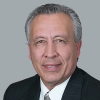Blog
New York City Paid Sick Leave
Effective April 1st, 2014, employers with five or more employees are required to provide employees with up to 40 hours of paid sick leave per calendar year. The New York City Earned Sick Time Act (Paid Sick Leave Law) defines a calendar year as any consecutive 12-month period. New York City employers with fewer than five employees are not required to provide paid sick leave, but must provide employees with up to 40 hours of unpaid sick leave.
Notice of Employee Rights
Employers must provide the notice to existing employees by May 1, 2014, and to new hires on date of hire.The notice must state the employers calendar year, including Start Date and End Date. Employees have a right to the notice in English and, if available on the DCA website, in their primary language.
Record Keeping
Employers must keep and maintain records documenting compliance with the law for at least three years. Employers must keep any health related information confidential unless the employee permits Employers to disclose it or disclosure is required by law. Employers must make the records available to the Department of Consumer Affairs (DCA) upon notice at an agreed upon time of day.
Advance Notice
If the need is foreseeable, employers can require up to seven days advance notice of an employees intention to use sick leave.
If the need is unforeseeable, Employers may require an employee to give notice as soon as practicable or reasonable.
Documentation
If an employee uses more than three consecutive workdays as sick leave, Employers can require documentation from a licensed health care provider; however, the Act prohibits employers from requiring the health care provider to specify the medical reason for sick leave. Disclosure may be required by other laws. Employers may also require an employee to provide written verification that the employee used sick leave for sick leave purposes.
Unused Sick Leave
An employee can carry over up to 40 hours of unused sick leave to the next calendar year. However, Employers are only required to let an employee use up to 40 hours of sick leave per calendar year. Employers can choosebut are not requiredto pay an employee for unused sick leave at the end of the calendar year. Employees cannot carry over sick leave if employers pay them for the unused sick leave AND employers provide the employee with an amount of paid sick leave that meets or exceeds the requirements of the law for the new calendar year on the first day of the new calendar year.
Retaliation
Employers cannot retaliate against employees for requesting or using sick leave. Retaliation includes any threat, discipline, discharge, demotion, suspension, or reduction in an employees hours, or any other adverse employment action against an employee who exercises or attempts to exercise any right guaranteed under the law.
Excluded Employers
The Act does not apply to the following employers:
- Federal work study programs
- Employees whose work is compensated by qualified scholarship programs
- Physical therapists, occupational therapists, speech language pathologists, and audiologists who are licensed by the New York State Department of Education
- These professionals are not covered under the law if they call in for work assignments at will; determine their own work schedule; have the ability to reject or accept any assignment referred to them; and are paid an average hourly wage, which is at least four times the federal minimum wage.
- The exemption, if applicable, only applies to physical therapists, occupational therapists, speech language pathologists, and audiologists.
- Independent contractors who do not meet the definition of an employee under New York State Labor Law
- Participants in Work Experience Programs (WEP)
- Certain employees subject to a collective bargaining agreement
Excluded Employees
The Act does not apply to the following employees:
- Employees who work 80 hours or less in a calendar year in New York City
- Students in federal work study programs
- Employees whose work is compensated by qualified scholarship programs
- Employees of government agencies
- Physical therapists, occupational therapists, speech language pathologists, audiologists who are licensed by the New York State Department of Education
- These professionals are not covered under the law if they call in for work assignments at will; determine their own work schedule; have the ability to reject or accept any assignment referred to them; and are paid an average hourly wage, which is at least four times the federal minimum wage.
- The exemption, if applicable, only applies to physical therapists, occupational therapists, speech language pathologists, and audiologists.
- Independent contractors who do not meet the definition of an employee under New York State Labor Law
- Participants in Work Experience Programs (WEP)
- Certain employees subject to a collective bargaining agreement
You may find additional information about the Paid Sick Leave Law at:
http://www.nyc.gov/html/dca/html/law/PaidSickLeave.shtml
Table of Contents










